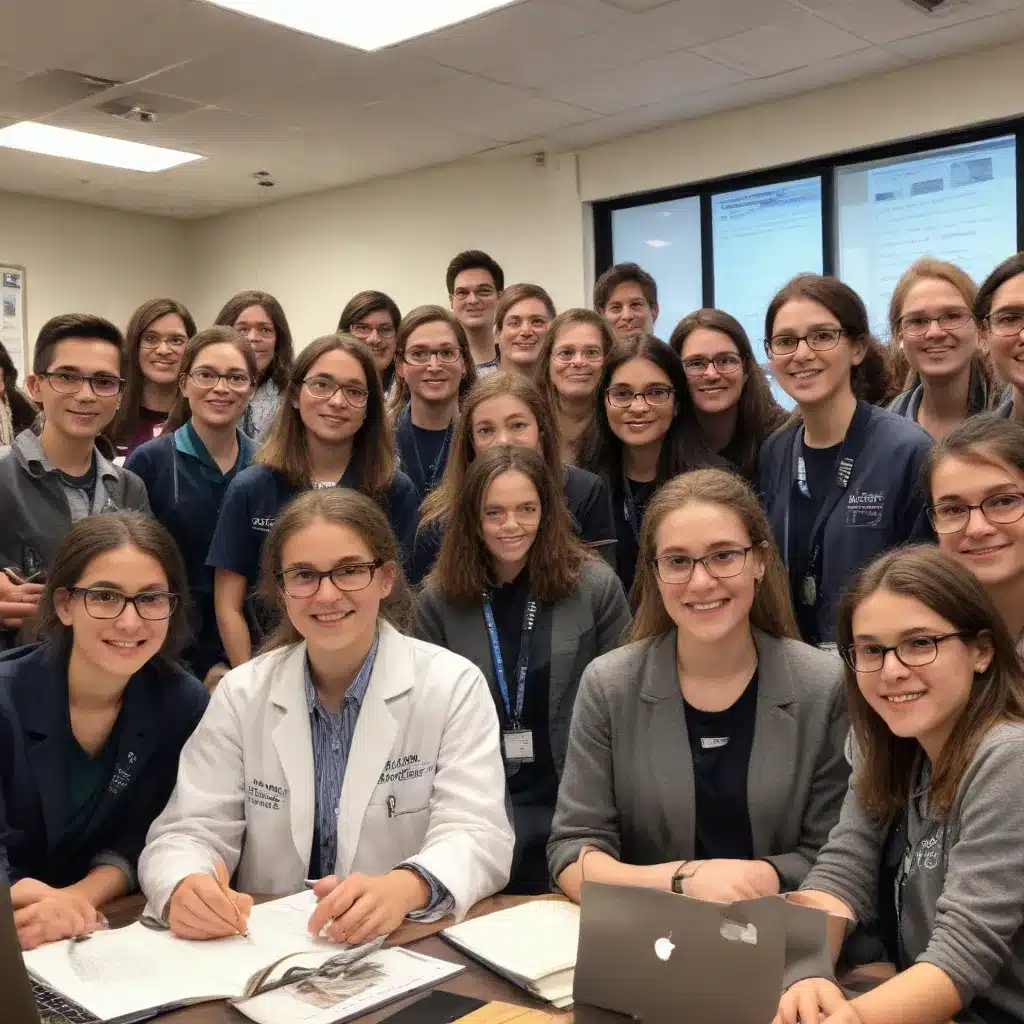
Empowering Students to Share their Passion for Science
At Stanley Park High School, we believe in nurturing the next generation of science enthusiasts and communicators. That’s why we’re excited to introduce our very own Science Journalism Club, a dynamic and engaging student-led initiative aimed at inspiring our community to explore the wonders of science.
As an experienced educational writer, I’m thrilled to share the story of this transformative club and how it can empower our students to become confident science ambassadors. Through a combination of hands-on workshops, community outreach, and real-world experience, the Science Journalism Club is poised to ignite a passion for science communication that will last a lifetime.
Fostering a Passion for Science Communication
The journey to becoming an effective science communicator often begins with a deep fascination for the subject matter. For many of our students, their love for science stems from the thrill of discovery, the curiosity to understand the natural world, and the desire to make a positive impact on their communities.
However, translating that passion into a tangible means of sharing science with others can be a daunting task. That’s where the Science Journalism Club steps in, providing a supportive and nurturing environment for students to hone their communication skills and amplify their scientific voices.
Building a Community of Science Communicators
One of the core objectives of the Science Journalism Club is to foster a strong community of like-minded students who are passionate about science and eager to share their knowledge with others. By bringing together individuals from diverse academic backgrounds, the club encourages cross-pollination of ideas, collaborative problem-solving, and the development of multifaceted communication strategies.
Through regular meetings, workshops, and collaborative projects, club members will have the opportunity to learn from each other, share best practices, and explore the various avenues of science communication, from writing for school publications to creating engaging social media content.
Developing Essential Communication Skills
Effective science communication is not only about conveying complex information in a clear and accessible manner; it’s also about cultivating a range of transferable skills that can benefit students throughout their academic and professional lives. The Science Journalism Club is designed to provide a nurturing environment for students to hone these essential skills, including:
Effective Writing
Club members will have the chance to put their writing skills to the test, crafting engaging articles, blog posts, and social media content that translates scientific concepts into easily digestible formats for our school community and beyond.
Public Speaking and Presentation Skills
From delivering informative presentations to hosting interactive workshops, club members will have numerous opportunities to develop their public speaking abilities and gain confidence in sharing their passion for science with diverse audiences.
Multimedia Storytelling
In an increasingly visual and digital landscape, the club will encourage students to explore the power of multimedia storytelling, using tools like photography, videography, and data visualization to bring their scientific narratives to life.
Critical Thinking and Problem-Solving
By tackling the challenges of translating complex scientific ideas into compelling and accessible formats, club members will sharpen their critical thinking and problem-solving skills, preparing them for the demands of higher education and future careers.
Connecting with the Community
One of the most exciting aspects of the Science Journalism Club is its commitment to engaging with the broader school community and beyond. By partnering with local organizations, participating in community events, and reaching out to younger students, club members will have the opportunity to inspire the next generation of science enthusiasts and foster a deeper appreciation for the role of science in our daily lives.
Through school-wide science fairs, interactive science demonstrations, and educational outreach programs, the club will serve as a bridge between the scientific community and the general public, breaking down barriers and making science more accessible and inclusive.
Empowering Students to Become Science Ambassadors
As students navigate the ever-evolving landscape of science and technology, the ability to effectively communicate scientific concepts and findings has become increasingly crucial. The Science Journalism Club aims to empower our students to become ambassadors for science, leveraging their communication skills to inspire and educate their peers, families, and the wider community.
By providing a supportive and nurturing environment for students to hone their science communication abilities, the club will not only enhance their academic and professional prospects but also contribute to the cultivation of a more scientifically literate and engaged society.
Get Involved: Join the Science Journalism Club
If you’re a student at Stanley Park High School who is passionate about science and eager to develop your communication skills, we invite you to join the Science Journalism Club. Whether you’re interested in writing, public speaking, multimedia storytelling, or simply sharing your love for science, this club offers a wealth of opportunities to explore and grow.
To get involved, please visit our school website to learn more about the club and how to become a member. We can’t wait to see the incredible science stories and insights you’ll share with our community!
Conclusion: Inspiring the Next Generation
The Science Journalism Club at Stanley Park High School is more than just a student organization; it’s a transformative platform that empowers our young science enthusiasts to become effective communicators and ambassadors for the scientific community. By fostering a supportive and collaborative environment, the club is poised to inspire the next generation of science communicators, who will go on to shape the way we understand and engage with the natural world around us.
As an experienced educational writer, I’m excited to witness the impact this club will have on our students and our community. Join us in this journey of discovery, where the power of science communication can ignite a lifelong passion for learning and exploration.

